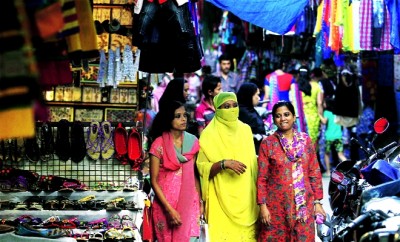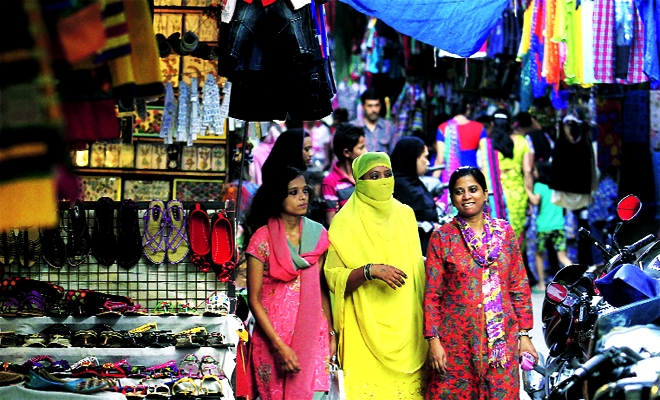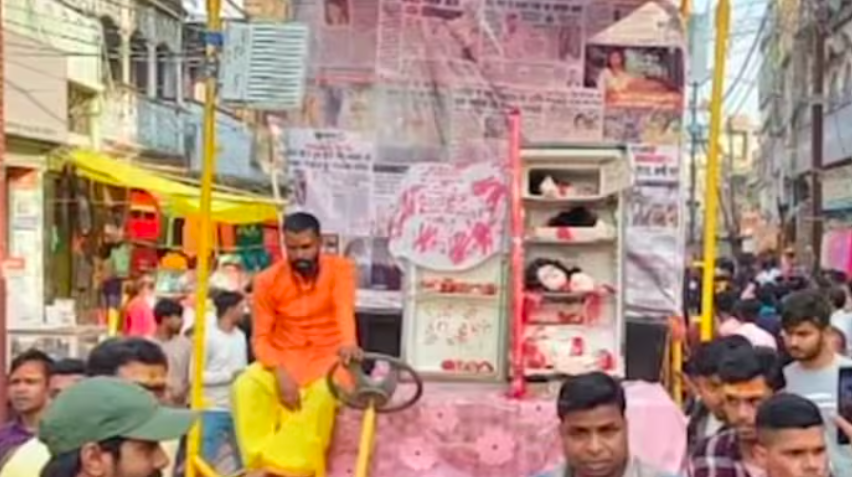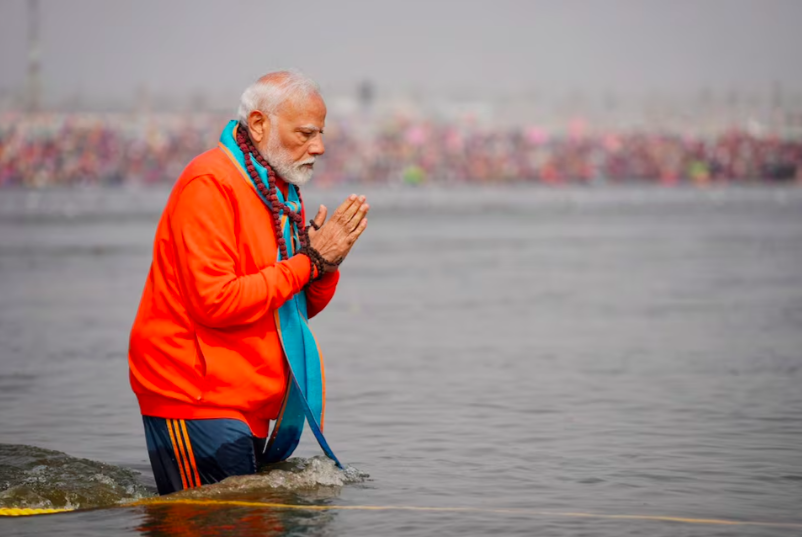Author Ved Prakash Sharma has written the highest selling Hindi pocketbook ever, Wardi Waala Gunda, in the 1990s and fictionalising the Rajiv Gandhi assassination. Now heading a successful publishing house in Meerut and working with Hindi cinema as an “ideator” and screenwriter, Sharma is a student of crime and intrigued how petty crime in UP has suddenly acquired a communal colour. He is struck by “both sides, Hindu and Muslim, who have their share of extreme views, becoming much bolder than before, crime going on the rise and the competition keeping the situation tense”.
 An uneasy quiet is what one finds in western UP, in cities as well as interior parts of towns, where an atmosphere of unresolved communal tension and several small but disturbing cases over the past year and a half provided the context for the Muzaffarnagar clashes breaking out. One finds city after city on edge, almost expecting trouble before the 2014 elections. Citizens say they are being “vigilant”, organising “peace and bhaichara samiti meetings” and keeping in constant touch with neighbours and the highest-ups in the administration they know. The tension is only set to escalate as the election campaign gets going.
An uneasy quiet is what one finds in western UP, in cities as well as interior parts of towns, where an atmosphere of unresolved communal tension and several small but disturbing cases over the past year and a half provided the context for the Muzaffarnagar clashes breaking out. One finds city after city on edge, almost expecting trouble before the 2014 elections. Citizens say they are being “vigilant”, organising “peace and bhaichara samiti meetings” and keeping in constant touch with neighbours and the highest-ups in the administration they know. The tension is only set to escalate as the election campaign gets going.
Western UP, which has 18.5 per cent of the state’s Muslims — as high as 27 per cent in cities such as Meerut and Moradabad that are marked as “sensitive” — had seen no riots since 1980 in Moradabad and 1987 in Meerut. As Muslim businesses have flourished, the usually defensive minority has confidently become a vital part of the India story. Muslims have been excelling not just in traditional crafts like brass work or glass, beedi or scissor making. Computer software and services, supply of fabric and fancy designs to designers, coffee stores, schools, hospitals and a flourishing meat export business are what have underwritten the prosperity that came since periodic riots became history. Muslims have found space in the local power networks or play key roles in almost all political parties. Courted by all non-BJP parties, they have seen the number of Muslim MLAs rising steadily since 1991; in this assembly there are 69, an all-time high. Political scientist A K Verma estimates that in municipal bodies, Muslims have an even higher representation, sometimes exceeding their share in the population.
All of this has led to a situation analogous to the rise of the Dalits in the 1980s, with the relative empowerment of an earlier underclass leading to resentment, which has also been fanned to be harnessed politically.
St Xavier’s International, a school in Amroha town, was set up in 2000 by brothers Mujahid Husain Zaidi and Khurram Zaidi, and is far from being a convent. Says Mujahid nonchalantly, “This is just a name we picked as Muslims here want quality and a regular name wouldn’t have made the cut.” Principal Shagufta Yasmeen says Muslim parents “don’t need persuading to send their children here anymore. That is the big change”.
At the nearby Mesco Primary School, the administrator, Ayesha, describes personality development courses where children in class I itself are started on computers and the English alphabet and their parents, “wealthy Muslim farmers but often unlettered, want children to learn the correct English pronunciation from the very start”.
Where such aspirations and the visibility of Muslims — in hijabs, burqas, skull caps or distinct pajamas, in marketplaces or educational institutions, with mobile phones or on motorcycles (both key symbols of mobility here) —have found a hook in politics is with the Samajwadi Party’s triumph in 2011 and with the declaration of Narendra Modi as the BJP’s prime ministerial candidate. Now, openly, the SP has become a “Muslim party” and the BJP’s Modi the “Hindu saviour”.
What has complicated matters is that the “pro-Muslim” political rhetoric of the state government has not been matched with concrete steps, causing a sense of thwarted expectation among Muslims and one of annoyance among others, and advantage being taken by groups that sense a political opportunity. The SP spoke of 18 per cent reservation for Muslims, then gave signals such as suspending IAS official Durga Shakti Nagpal for demolishing a “Muslim” wall, announcing emoluments for Muslim brides and finally announcing, in August, that every police station will have at least two Muslim constables. Says a local Muslim leader, “There is therefore a demand to remove even Muslim IPS and IAS officers from here. The Shamli trouble started with a Hindu khap panchayat over a demand to transfer SP Abdul Hamid.”
Says Aslam Usmani, lecturer in Amroha’s A K Khan Inter College, “Without doing anything specific, this government has been trying to show itself as pro-Muslim. As a result, young and irresponsible groups among Muslims too race about on mobikes, violate traffic signals and, when stopped, stick their mobiles on the ears of the policeman and put a local leader on the line, frightening the cop.”
His colleague Tausif speaks of how “communal Hindu and Muslim gangs have got the cheek now to push the limits. Recently, a poor pheriwala who happened to be Muslim got into an altercation with a buyer who happened to be Hindu and about 150 Hindus landed up at the police station to push for an FIR — they were worried it wouldn’t be written otherwise”.
Both sides feeling shortchanged has also meant, as Aligarh-based Jasim Mohammed puts it, “small problems like filth from a meat shop not being picked up — a municipal issue — acquiring a communal colour”.
Says Meerut-based retired IAS officer Prabhat Roy, “So there is no Hindu-Muslim divide now but tension as there is a divide between secular and communal. The Muslim groups that tom-tom ‘hamari sarkar’ for Mulayam Singh Yadav and his son the chief minister are now countered with calls for ‘Modi lao’.”
Engineer and Meerut-based activist Lakhan Tomar believes the threat of legitimate Muslim aspirations being twined with a growth in visible Muslim “gangs” has given the BJP an idea to work on. “As RSS shakhas in cities and small towns have come down, they have been pushing for village communalisation as a revival plank. In a village, a riot is rare, everyone knows everyone else, and the scars are tougher to heal. And what better way to push Narendra Modi in the villages than on the back of a polarising and emotional call.” The VHP’s western UP organisation secretary Ishwar Prasad says, “There is one-sided police action and the cheek of Muslim groups is on the rise. Its all ek-tarafa.”
Says Rashid Alvi, former MP and Congressman, “The problem is that neither Hindus nor Muslims are confident and insecurity is on the rise. Mulayam will do his best to fan this polarisation. Like he drew everyone’s attention to the 84 kosi parikrama, he will try and stop Modi from campaigning, thinking it will please Muslims, but it won’t. All this keeps the tension up. And the BJP, VHP thrive on it.”
Mukhtar Abbas Naqvi, BJP general secretary who hails from Rampur, says there have been at least 100 small communal clashes since the SP government took over. “The SP keeps blaming BJP and VHP cadres. But aren’t they the ones in government ?”
Says novelist Sharma, “Meerut during the 1980s riots was a small town with not much to lose. Now, it’s a big town and business and trading stakes are high. The tension may continue, but no rioting, we hope.”
Until then, it is discussions on questions such as whether keeping Azam Khan, the SP’s Muslim face, in the cabinet can help Mulayam regain faith and face. Or whether the BJP will gain, or whether the BSP and the Congress will by being above the SP-BJP street fight.
Says Moradabad-based Mohammed Asim, a farmer as well as a transporter and local strongman, “They are trying to make this an ‘H’ versus `M’ election. But let the elections come. Sab ko apni auqat samajh mein aa jaayegi.” (Courtesy: indianexpress.com)









